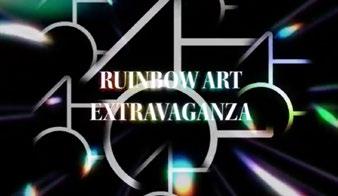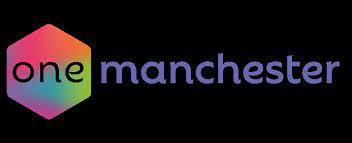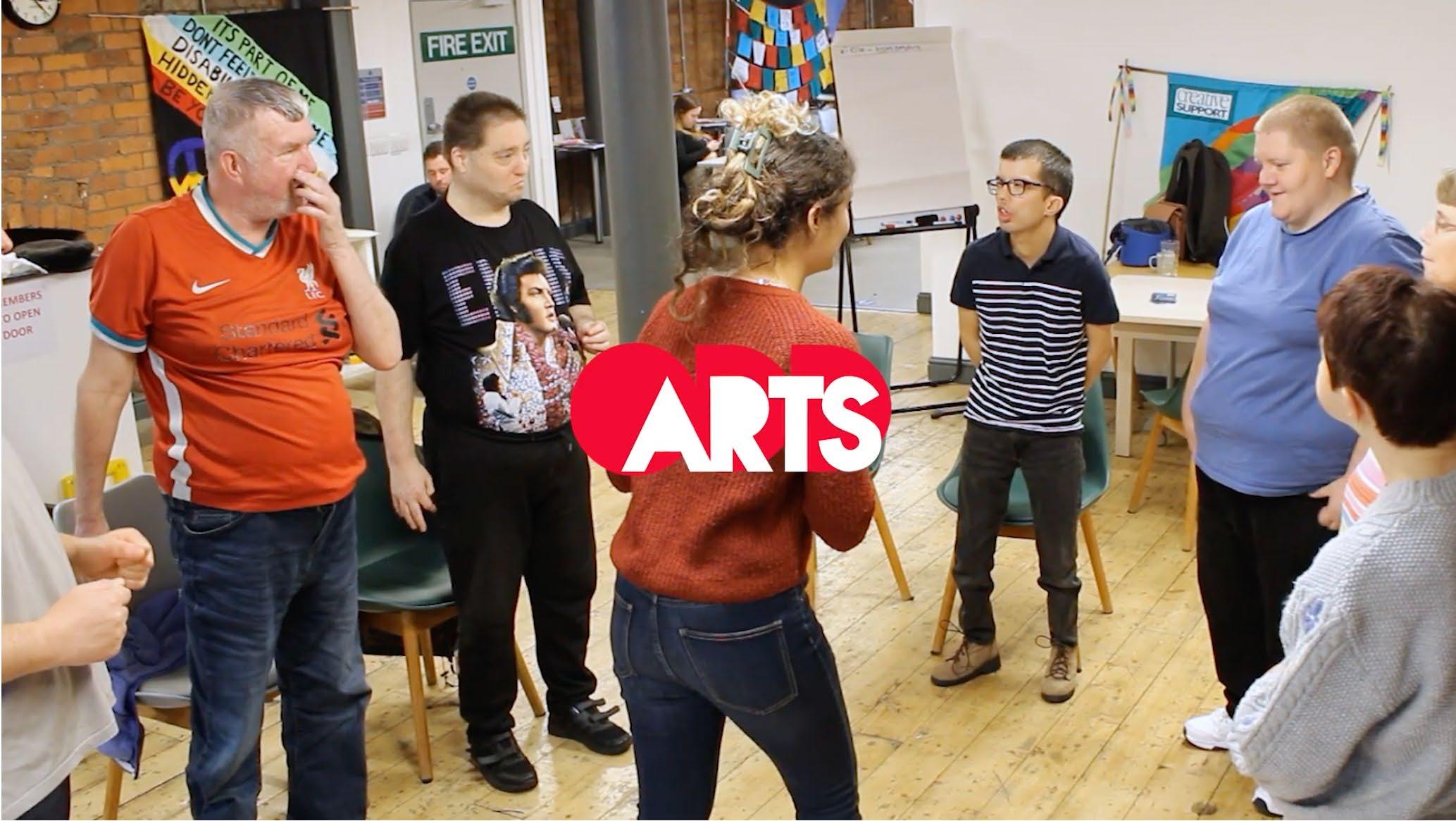Evaluation of Creative Community Resettlement (CCR) Pilot



Odd Arts received funds from ACE to develop and deliver the CCR project from March 2021. Within this time it has delivered 349 sessions, working with 473 individuals and 20 Artists. It has commissioned and undertaken a participative external evaluation throughout.
The core principles that inform the CCR project are as follows:
• CCR wants to challenge the misconception that people who have experienced adversity, trauma and incarceration are ‘other’.
• CCR does not think that people who have served custodial orders are the same as people who have been sectioned under the mental health act or the same as people seeking asylum, but it recognises that individuals with any of the previous lived experience are likely to have faced multiple barriers and trauma and require a needs-based, flexible, person-centred, trauma informed and
It’s key aims and desired impact are:
CCR Aims to increase (for individuals)
A sense of belonging, connection and purpose
Well-being and mental health
Protective measures and resilience
Work-based and creative skills
Confidence and communication skills
CCR Aims to reduce (in society and the creative sector)
Negative misconceptions around people deemed as ‘other’
A one-fits-all approach
Inequality and lack of access to arts, theatre and culture
Top down approaches, that prioritise organisational needs over individual needs
Systemic discrimination
safe approach to working with them.
• CCR adopts high quality theatre, arts-practice and arts practitioners, that is also underpinned by therapeutic, trauma-informed, restorative, strengths based and non-violent communication approaches.
• CCR is community-led, meaning that the design and practicality of the programme respond to the needs of the people and the communities we work with.
• CCR is testing new ways of working and not conforming to the status quo in how people who face experience racism, inequalities, disadvantage and discrimination engage with theatre, arts and culture.

The project was designed to deliver a range of interventions including 121 and group based creative activities that will ensure that each participant’s needs are met. Individuals are supported in three key phases – Engagement, Creative and Cultural Therapeutic participation, with a view to building (at phase 3) Community Confidence and Creative skills.
CCR delivers to a range of participants, either by self-referral, the referral of individuals from critical stakeholders and group delivery on site at stakeholder premises. (Referral)
Stakeholders include NHS, HM prisons, Mental Health support agencies and community support groups. In addition, the project engages with artists and creative organisations across the region to make creative connections for individual participants - in Theatre, Art, Music and more.

Odd Arts track the effectiveness and impact of our interventions by embedding evaluation practice in our delivery. As the evaluation methodology is formative and continuous, we can track both shortterm and longer-term impact. By developing partnerships with stakeholders and community partners we can monitor the ongoing progress of participants.
Approaching two years of delivering and continuous engagement, Odd Arts can confidently demonstrate that the CCR project is meeting its desired aims and impacts on individual participants. Creating:

• A sense of belonging, connection and purpose
• Improved Well-being and mental health
• Protective measures and resilience
• Work-based and creative skills
• Confidence and communication skills
Participants have been supported to experience art, theatre, writing, performance and any creative activity that their initial engagement phase has identified as appropriate, working with the Odd Arts team and professional artists and facilitators.
Creative outputs have included Art, Lyrics, plays, podcasts, photography and stand-up comedy, all of which have been showcased in newsletters and through performance and attendance at celebration events.

The critical output for evaluation being to understand the impact on the individual participant of their engagement and participation in the creative therapeutic offer. This then being the cornerstone for broader societal impacts as defined by Odd Arts.
The evaluation methodology was revised following the interim evaluation report (See Appendix 1) to address any barriers to respondents.
Our recent evaluation results have told us that:
Over 90 % of respondents told us that they left their sessions feeling that their mood had improved as a result of taking part.
91% of respondents said they would return to another session, 84% saying they would now find it easy or very easy to do so.
When asked specifically how they felt after attending group sessions or a 121:
95% of respondents said they felt more creative.
88% said that they felt more confident.
The impact of sessions on individuals was monitored by asking respondents to reflect on how they felt before and after participating in a session. When asked to choose from a selection of words to describe how they felt before a session, around half of respondents reported that they felt anxious or unsure:
50% of attendants reported being anxious or unsure at the outset,
with only 30% reporting being Curious or Happy and 20% feeling creative.
This was reported at the interim stage and remained consistent throughout the project. Stakeholders all commented on the “journey” that their service users had been on, and how this positively impacted on individuals.
When respondents were asked to choose from a selection of words that demonstrated how they felt AFTER participating the most common words chosen were:
With many also selecting: Creative, Safe, Positive, Surprised and Connected. With over 90% reporting that they would attend another session, we can see that the direct impact on individuals is significant. With those who attended group sessions in particular reporting feelings of connectedness, and inclusion.
I came into the workshop really sad today, but I just feel so much better….
This is always a safe space.
I think doing these sessions brings out the best in me and shows me what I can achieve.
It was good to find out more about the others here.
In terms wellbeing and confidence, we can see from individual responses, that even those who were conflicted after attending a session, for example selecting “Happy and Proud” but also “Unsure or Anxious”, would still be likely to attend another session. Clients told us in their own words that they felt listened to, safe and found being there calming.
I’ve found this really calming. I just focused on what I had to do and forgot about all the things I was worried about.
Developing and understanding their own creativity has also been a positive impact for participants. With new skills, confidence in trying new things and in some cases challenging themselves through performance in a group or even a showcase setting. When asked to tell us in their own words what they had achieved or gained from participating respondents said:
It was so good to watch the play and to learn something new
I’m glad I stayed in the play I loved every minute, it was so inspirational Writing a poem about how I feel
Clients have, throughout the project helped us to shape the programme by telling us in their own words what they felt they had gained after attending.

You can see a slideshow of their feedback here:

Participants were also asked what, if anything, else they might like to see from Odd Arts and CCR in future sessions. They told us:
“More Art” “More writing” “More sessions” “more talking” as well as
“Poetry performance” “Yoga” “Meditation” and “Dance”

Mental health is like a storm
Because ups and downs become the norm
Mental health is like a kettle
Because extreme insanity begins to settle
Mental health is like the snow
Because the layer of thickness hides what’s underneath to show
Mental health is like a plant
Because it needs needs water and sunshine
Mental health is like a dog
Because it barks and growls and chews
Mental health is like a spoon
Because it loves ice cream
Mental health is like a thunderstorm
Because it can overwhelm you and make you feel scared
Mental health is like a chameleon
Because it can change from minute to minute
Mental health is like a swordfish
Mental health is like a fridge
Because sometimes you need to have a clear out when some bits go mouldy
Metal health is like a fork
Because it can help you when you’re trying to digest something
Mental health is like a zebra
Because from a distance it looks like a horse but up close it’s something entirely different
Because it can be dangerous
Take your lizard eggs and crack them into a bowl.
Weigh your sugar and flour and laugh evilly while you spoon it into the bowl.
Whisk them together and while you’re whisking think evil thoughts.
Roll out your dough in the shape of a skull and put it in a dish.
Put on gloves and goggles to protect yourself from the evil apples.
Take 5 evil apples and cut them up, sprinkle with salty sugar and sinful cinnamon.
Cover with a thin layer of dough in the shape of a broken heart.
Place in the oven for 40-50 minutes.
Handle with gloves and only feed poison Apple pie to your enemies.
This recipe page takes no liability for the effects of poison Apple pie.
Working directly and closely with partners and stakeholders, both as a referral for service users and to create and deliver bespoke sessions, has increased the reach and the scope of the project. Stakeholders who have been engaged throughout the project have also given detailed feedback about the benefits to their service users engaging with project and with Odd Arts more generally.
Partners were invited to participate in focus groups and to provide feedback via a questionnaire, which encouraged them to in either case to describe their engagement with the programme in their own words. When asked what the impact on their own service users had been, stakeholders told us through their own observation that their clients:
[were] Proud and more at ease in their environment
[have] loved having the opportunity to speak to an external adult and being able to express and discuss a range of topics. The students have been able to reflect and learn different ways to manage how they’re feeling.
Stakeholders did say that use of some of the words – like Drama – was a barrier to some clients, who might not understand how broad a term it is:
clients might think they are going to have to do Shakespeare or something, but when they realise its fun and different - it’s better
One stakeholder provided us with a detailed case study of client “B” who has been working as an individual with odd arts and developing lyric writing and podcasting skills. The partner described the impact on the individual as “profound” and included in his description of the impact on his service user:
B has not breached on his Court Order following support from Odd-Arts. B is a child who some professionals may describe as ‘hard to reach’. He has been reached by Odd-Arts.
Our referral partners also told us about the impact on their own service or organisation, and all were keen to continue their relationship with Odd Arts and the CCR project.

I have only had positive feedback from the clients and when asked what they enjoyed most about working with the [service] they said the Odd Arts sessions.
It has allowed the [service] to explore other ways of working with young people and has given us a way of engaging with young people on a more creative way.

Stakeholders and participants fed back positively about the approach and professionalism of project team.
Arranging the sessions with Odd Arts were very simple. Being able to have a catch up before and after each session was also very beneficial so a big well done to Odd Arts for the fantastic work that the organisation is doing.
One stakeholder provided us with a detailed case study of client “B” who has been working as an individual with odd arts and developing lyric writing and podcasting skills. The partner described the impact on the individual as “profound” and included in his description of the impact on his service user:

B has not breached on his Court Order following support from Odd-Arts. B is a child who some professionals may describe as ‘hard to reach’. He has been reached by Odd-Arts.
Stakeholders did make some suggestions for improved future working. They felt that growing the approach to co-creation of group delivery that has begun to develop in the recent months of the project would be hugely beneficial.

One client suggested having a diagnostic session prior to starting delivery, so that CCR could really understand the outcomes their own organisation was trying to achieve.
I think if you let people come into your space and deliver for you, you have to take joint responsibility for the outputs too
Written at Creative Support for their Christmas performance in 2021. Using all their wonderful devised characters.

Written by D. Reflecting on their day and how it made them feel.

Amazing ideas and imagination from the group at creative support to co write this script.

Written and Performed by the wonderful comedian Kane.

Wriiten and Devised in response to our hidden disabilties workshop at Creative Support.
 Ruinbow Art Extravaganza
Delgato Martina
Her Story
The Ghost of Swan Building
Love Poem
Video projects created by participants
Rainy Day Poem
Christmas Play
Kane Stand Up
Script Writing Session
Alex’s Story
Writing projects created by participants
Ruinbow Art Extravaganza
Delgato Martina
Her Story
The Ghost of Swan Building
Love Poem
Video projects created by participants
Rainy Day Poem
Christmas Play
Kane Stand Up
Script Writing Session
Alex’s Story
Writing projects created by participants
Following this initial two year pilot delivery funded by Arts Council England with additional support from One Manchester, we have been able to:



• Evidence a need for the project and show massive demand from multiple sectors
• Evidence that the project positively impacts wellbeing and health for people facing mental health challenges & adversity
• Set up a female specific strand funded for 3 years by The Pilgrim Trust
• Reach more young people in the programme through 12 months investment from Innox Foundation
• Receive investment from Foyle Foundation
• Build on the success of the project through 3 years funding to work with more young people and increase the evidence base from Chimo Trust